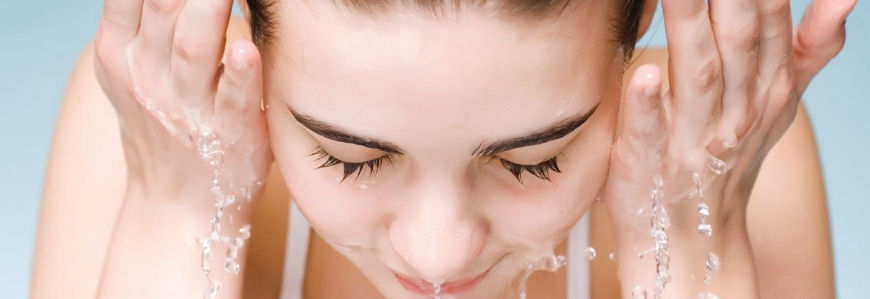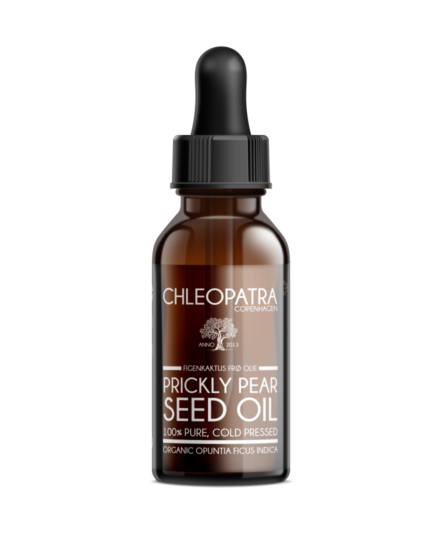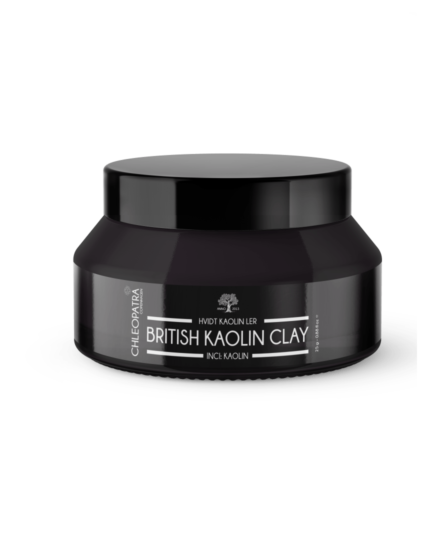FOily skin is a major annoyance for many. However, an oily skin type is not necessarily a bad thing, as it is less likely to crease, crack, wrinkle or show other signs of ageing because the oil helps to retain the moisture locked in the epidemis (the outer layer of the skin).
On the other hand, oily skin is particularly susceptible to clogged pores, blackheads, and the build-up of dead skin cells on the surface of the skin, which usually leads to acne problems.
In fact, the skin produces sebum to protect the skin from drying out and to waterproof the skin.
In this way, sebum has two functions. Firstly, it protects the skin from drying out, making it waterproof, but it also ensures that you don't lose too much water from the inside. The quest for the miracle cure for oily skin begins here.
[lepopup slug='optin skin problems']Fact box on oily skin
What you don't know about oily skin could be indirectly harming you.
- Even if you have oily skin, your body still needs moisturisation
- Uncovered skin can cause breakouts
- People with oily skin are more prone to acne breakouts
- Having oily skin can be genetic
- People with oily skin tend to wash the protective oil off their skin more often
- Sunbathing doesn't help - it won't make your skin less oily
Block "156904" not found
Part 1
Why do we get oily skin?
Oily skin is caused by hyperactive sebaceous glands producing a substance called sebum. Sebum is a natural and healthy lubricant that the skin itself produces to protect the skin from the elements.
It is the sebaceous glands that produce the skin's protective sebum and these are found pretty much all over the body. With the exception of the palms of your hands and the soles of your feet.
Different parts of the body have different numbers of sebaceous glands. Your hands and feet don't have many, but your back, forehead and chin have a lot. You'll find around 400 - 900 sebaceous glands per square centimetre throughout your body.
Sebum is hidden in the dermis layer just under the skin and sooner or later, they make their way from the dermis to the surface of the skin through pores in the skin and through hair follicles.
Oily skin is hard to control, your skin needs this oil, so the problem arises when the body's oil production increases. When the body produces too much oil, your pores enlarge to accommodate the excess oil production.
There are other things that can cause oily skin. Age is a good example, as during puberty the levels of sex hormones are at their peak. This can make it even more difficult to control oily skin because it can also be a result of genetically determined hormonal changes.
The hormone androgens, which is a sex hormone, stimulate the sebaceous glands, leading to increased production of oil in the glands. This is often seen in girls when they are about to menstruate and their skin becomes oily.
The same symptom can occur during pregnancy, menopause and hormonal imbalance. The contraceptive pill is a good example where hormones become imbalanced.
Excess androgens can also actually block pores so that oil can't escape. This leads to blackheads and pimples.

Sebum, the skin's natural oil
Sebum protects against bacteria and fungal infectionsBut when the skin produces too much sebum, it turns into a heavy and thick consistency that can sometimes smell if the large amount of fat is affected by external bacteria.
Too much sebum is therefore a problem for your skin. If sebaceous glands or hair follicles become clogged with sebum and dead skin cells, bacteria are formed, leading to acne.
Sebum production is usually at its highest during puberty, but hormonal influences can also increase production, such as menstruation, during pregnancy and menopause.
Oily skin on the face
Although you can have oily skin in several areas of your body, it's typically most noticeable and troublesome on your face.
If you're one of the many people who struggle with oily skin, you know how difficult it can be to get rid of.
Oily skin is often made more irritable by the many products that are supposed to alleviate the problem.
The real problem often lies in the ingredients of these products. Instead of fixing the problem, they often make it worse and cause your skin to overproduce sebum.
So while it sounds crazy to put oil on oily skin, it actually has a surprisingly good effect.
Why oils are effective against oily skin
Based on the fact that an important tool for the skin is its own oil production of sebum. So it makes no sense that so many of us are trying to scrape all the good oil off our bodies.
The skin's natural oil helps to protect the body against harsh weather conditions and external bacteria, but also to prevent the body from letting go of heat and fluids too easily.
Therefore, there is no doubt that the body needs the protective layer. The ancient Egyptians and Greeks knew better than most people do today. They used pure oils on their bodies - including their faces - to protect their skin from harsh weather conditions and sandstorms.
Forget about fancy remedies for oily skin, because all you need is a good oil. It sounds crazy to apply an oil to skin that's already oily, but that's where the trick lies. Not only is it all-natural and pure - free from chemicals and other nasty toxins.
Pure oils help the skin to detect any overproduction of sebum. After a shower where the skin has been washed free of oil, the skin will compensate quite quickly by producing oil - and when it thinks it's super dry, it produces way too much.
This is the result of the many balancing agents we use in today's body care, a high consumption of baths and showers, and many other factors.
When you apply a pure oil to your skin after a shower, your skin will realise that it already has a protective layer - thereby tricking your body into producing less oil itself and you'll find that your skin becomes less oily.
Natural treatment for oily skin
When treating oily skin, the goal is to remove the excess surface sebum without completely removing the natural skin oil.
Attempting to remove sebum can actually create an actual worsening of sebum sekretion, which defeats the purpose of cleansing in the first place.
One way to cleanse oily skin is to cleanse with a natural facial soap specifically for oily skin.
Another method is to apply oil to the skin so that the body will realise that it already has plenty of protective agents and the natural sebum production can be reduced.
Jojoba oil
Jojoba oil is good for oily skin, but it may initially seem to make your skin more oily.
It is therefore recommended that you try to apply the oil with very few drops on the exposed areas, preferably in the evening before going to bed and leave it on overnight.
Vegetable oils
Tamanu oil
Tamanu oil not only relieves oily skin, but also impure skin in particular. If you have acne breakouts due to oily skin, it is therefore recommended that you start using tamanu oil.
Continue using this until you see a significant improvement in your acne and then switch to a more sebum-like oil such as jojoba oil or macadamia oil.
Vegetable oils
Get rid of oily skin and clogged pores
When switching to natural oils to minimise your skin's overproduction of sebum, it's also a good idea to use a face mask once a week or fortnight.
In face mask acts as a detox for the skin by removing impurities, toxins and waste products from the skin.
This way, you can also unclog pores and be better prepared to fight blemished skin and acne. For example, try a mild kaolin clay
Mineral Clay
Why oily skin is good
It's not all bad for nothing. Because despite the fact that you might think oily skin is a pain in the arse, an oily barrier also has its benefits. Here we list the things you should be happy about with an extra shine on your face:
- Your skin is always glowing
- Visible signs of ageing are a little slower for skin that is well protected
- You always carry a natural nourishment
- You're extra protected against harsh weather
Part 2
Does natural oil work for oily skin?
The other day I saw an article from a well-known gentleman who produces a Danish skincare line. I won't go into any more detail about who I'm talking about, but the article was about oil for oily skin. What grabbed me about the article, however, was that it appeared at first glance to be an advocate of clean oils for the skin.
On closer reading, however, the oils were basically said to not work and that it's all a scam. Let me mention right away that the person's own skincare range contains synthetic chemicals, solvents and preservatives among others. But that's not all...
The undeniably funny, but at the same time tragic, thing about this specific article is that it's a recurring theme and not a unique example within the industry.
When it comes down to it, many of the classic cosmetics manufacturers are "apparently" naysayers when it comes to the use of pure oils. Some of them, as in the case of the article I read, even go so far as to call it a scam.
The funny (read tragic) thing is that they use oils themselves for their chemically produced creams, lotions and moisturisers. lip balms and more.
Tragic but true
The real tragedy is that when a manufacturer who uses oils (though not overtly) in their products makes a big deal out of the fact that oils have no effect. Well, then it's undeniably just a case of ruining it for other retailers who actually make a living from selling the real thing.
Therefore, we can only emphasise the importance that if you want to know which ingredients you put on your skin and which manufacturers you want to trust, you need to get up early in the morning and get your magnifying glass out, because the smart salespeople we know from the US have also come to Denmark.
The battle between natural and synthetic chemistry
Personal care / Personal care beauty industry is rife with what's called greenwashing (greenwashing if you will). And of course it's obvious - as more than 70% of us say we'll buy something if we believe it's "natural". Why shouldn't the beauty industry try to capture our money by marketing their products as natural?
However, natural is not a defined legal term. It has no regulatory meaning. So we don't have an environmental agency playing policeman to "natural" claims on cosmetic products.
One of the biggest myths is that if something is on a shelf, some agency or government must have approved it. This couldn't be further from the truth.
This basically means that any company can slap a stamp with the word "natural" on their product. And let's be clear - companies are doing this in a big way.
One of the favourite tactics is to use "derived from" as in, this ingredient is derived from coconuts. In the list of ingredients, you'll see some long-sounding chemical names, like PEG-40 Hydrogenated Castor Oil (Castor Oil). Naturally, you're thinking that it must be completely natural, because it comes from castor oil (castor oil).
That's just not always the case. Often the ingredient is far from its natural root.
In this example with PEG-40 Hydrogenated Castor Oil (Castor Oil) and while castor oil is natural, it's the PEG-40 in front of it that changes things. In the same way as if it had PEG-30, PEG-33, PEG-35 or PEG-36 in front of it. These compounds are polyethylene glycol derivatives of castor oil. And technically, PEG-40 Hydrogenated Castor Oil is a polyethylene glycol derivative of hydrogenated castor oil.
This means that castor oil is ethoxylated with ethylene oxide, which is a crude oil-based chemical. Ethylene oxide comes from ethylene (ethylene is oxidised to produce ethylene oxide), and ethylene is derived from crude oil via steam cracking. Petroleum can be natural, but that's probably not what you meant by "natural" when you read this on the product.

The battle between the chemical manufacturer and the natural healer
Unlike chemical-laden manufacturers that promise gold and green forests, oil retailers don't.
Of course, for any retailer, it's all about selling their goods. So as a consumer, you should always take things with a grain of salt. At the very least, you should research the area and perhaps try it yourself to form a valid opinion.
It's probably always been a case of the clever trying to trick the less clever. From the car dealer selling the car full of hidden faults. And to today, where food and cosmetic packages contain words like, rich in vitamins, low fat, sugar-free and "natural ingredients".
We all know by now that if something is sugar-free, it's packed to the brim with artificial sweeteners. If something is low-fat, it's often loaded with sugar. Now, if something is natural, we might not feel the same way if we're allowed to see the original content.
The natural vs the synthetic
Oils have been used for millennia, unlike chemical products that are still in their infancy. Natural products have been found to be toxic over time, which was before the chemistry behind them was known. That's just how nature works. You take a berry, eat it, find out if it's good or if it makes you sick to your stomach. That's how it all started.
Today, however, we know much more about the effects of plants and berries. Also about oils for the skin. So today we stay away from the things we know are toxic and only deal with what isn't.
Unnatural content, on the other hand, has already shown its ugly face. Among other things, our reproductive performance is impaired. It's no wonder. Our bodies were never designed for all the chemicals we ingest through our food, skincare products and the air.
Who should I trust?
Unfortunately, you have to trust yourself. Because at the end of the day, every retailer will say that their product is the best. We call our oils natural because they are natural, but that's not necessarily why our customers buy from us.
We believe that when it comes to natural oils like ours, as opposed to chemical products on the shelves in shopping centres, it's much more about the conscious choice of what you want to put on your skin.
Our ingredient list is easy to understand and that's what makes the difference for our customers. Both chemical and natural products can have an effective effect on skin and hair.
So we believe that first and foremost, you need to listen to your own inner voice that tells you what path you're on.
Use natural oil for oily skin
Naysayers will tell you that it makes no sense to use an oil for oily skin.
Thousands of years of experience have shown otherwise.
It may not solve oily skin alone. Because it's clear that there are many more factors at play. For example, your normal hygiene and, to a large extent, your lifestyle in terms of what you consume.
Oily skin is the skin's way of signalling that it is imbalanced. If you don't find this imbalance, no matter what you do, you're just putting a 'sticking plaster on the wound'. Synthetic chemicals or natural ingredients don't make much of a difference.
However, they can help regulate your skin's fat production. What often happens when oil is applied to the skin is that it gets vitamins and minerals that wouldn't be found in the skin's own sebum production.
Firstly, you trick the skin into thinking it has enough oil so it doesn't have to produce as much. And finally, the anti-bacterial and anti-inflammatory properties of oils can often help to kill some of the nasty bacteria associated with oily skin and acne.
Oily skin can be solved with oil for oily skin
Understand why skin gets oily
Don't be intimidated by oils
Oily skin means that the sebaceous glands are overactive and produce more oil. This can potentially cause pores to clog and attract bacteria. You can usually tell if your skin is oily or dry.
Oily skin has a shiny appearance that should be addressed to improve skin health. One reason for this is that the oil that sits on the surface of the skin is susceptible to oxidisation from environmental factors such as UV rays and car exhaust.
When this oil is oxidised, it has been experimentally proven to be very damaging to the skin.
It's common to want to steer clear of oil-based products if your skin is oily, but this is completely wrong.
Oily skin often produces more oil as a defence mechanism to balance the loss of moisture on your skin. By using pure oils or oil-based products, the oil attracts the skin's oil and can dissolve sebum, cloudy grease and make-up without stripping the skin of its natural oils.
There are many reasons why oily skin occurs, from genetics, to hormone levels and weather and eating habits.
For oily skin, you need a product that will naturally exfoliate the skin, deep cleanse and cleanse the surface to leave a smooth, radiant complexion. All without clogging your pores, which is exactly what the right oils can do for your skin.
How should you as a consumer deal with oily skin and oils?
More often than not, this is about two different types of people.
There are those who are fine with putting all sorts of unrecognisable chemicals on their skin and hair without questioning what they are and what they do.
And then there are those who are very conscious about what they put on their skin. Often these people are also willing to accept that the pure product may not work as well on paper as the chemical one. It's more about keeping the healthy and true-to-life value. Rather than succumbing to money-grubbing manufacturers who simply slap chemicals together and make others pay for the unfortunate side effects they eventually bring with them.
Another thing that conscious consumers usually realise is that testing of pure products never gets the same attention as synthetic products. This is of course related to patents and the opportunity to make big money, which is also seen when it comes to medicines. That's just the way the world works.
So as a consumer, you need to be vigilant. Familiarise yourself with what you are consuming and putting on your skin. There is no Mr Policeman from the Danish Environmental Protection Agency telling you what is right or wrong. It's ultimately up to you.
[lepopup slug='optin skin problems']Conclusion
Oily skin can be caused by several things, but common to all of them is that the skin produces extra sebum, which is the skin's own oil.
Having a greasy skin type is typically hereditary - so if you have oily skin, it's probably because your parents suffered a similar fate. But excess oil can also be a result of elevated hormone levels, such as during puberty, as well as during some parts of a woman's menstrual cycle, during pregnancy and when going through menopause, as sebaceous glands become more active during these times.
On the other hand, those with oily skin types also tend to be less affected by wrinkles, so while it may be driving you crazy, there is some light at the end of the tunnel.
In the meantime, you can try to control your body's oil production, possibly by using natural oils.


























Recommended natural products for skin, hair and body
Vegetable oils
Organic Moringa Oil 30ml - Chleopatra
Essential Oils
Organic Frankincense Oil 10 ml Essential Oil - Chleopatra
Vegetable oils
Organic Raspberry Seed Oil 30ml - Chleopatra
Vegetable oils
Organic Pomegranate Oil 30ml - Chleopatra
Natural Raw Materials
Candelilla wax 60g
Essential Oils
Organic Lemongrass Oil 10 ml Essential Oil - Chleopatra
Natural Raw Materials
Dead Sea salt 280g
Natural Raw Materials
Dried Lavender Flowers 40g